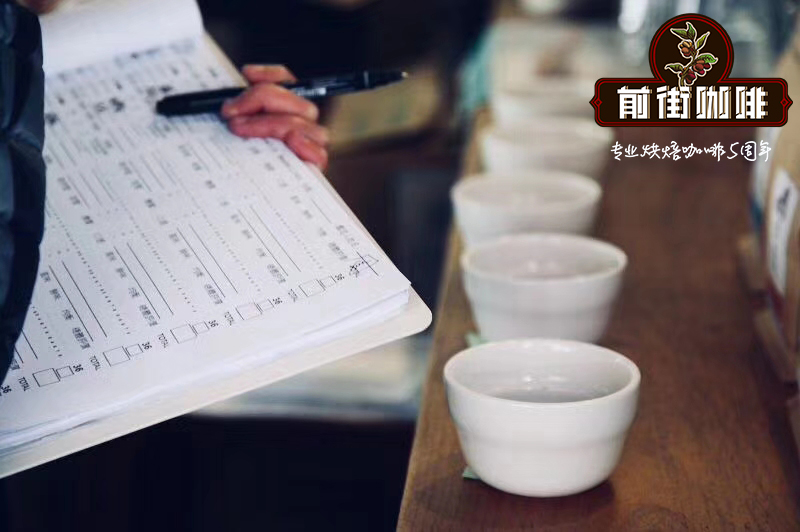Uganda Coffee Uganda Coffee

Professional coffee knowledge exchange more coffee bean information please follow the coffee workshop (Wechat official account cafe_style)
Ugandan coffee beans
Uganda Uganda Coffee
Introduction to Uganda Uganda Coffee
In Uganda (Uganda), Arabica coffee beans account for only 10 per cent of the country's total coffee production, but it is enough to attract attention. Uganda's best coffee is mainly produced in the mountains of Elgon and Bugisu along the Kenyan border in the north and Ruwensori in the west, and is available for export in January or February of each year.
The equator runs across Uganda, and the suitable climate makes it the main producing area of Robbins coffee beans (Robusta) in the world. In the 1960s, Ugandan coffee production remained at 3.5 million bags a year. By the mid-1980s, coffee production had dropped to 250 bags a year, mainly for political reasons. But now coffee production is on the rise again, currently about 3 million bags a year. One of the main problems facing the coffee industry is that there are no good roads to transport coffee to ports such as Mombasa in Kenya or Dar es Salaam in Tanzania.
In order to improve the quality and reduce the cost of coffee, Uganda cancelled the exclusive management right of the Coffee Management Committee (Coffee Marketing Board, referred to as CMB) in November 1990. Most of the work originally undertaken by the Coffee Management Committee has now been handed over to the cooperative organization. Privatized coffee accounts for 2% of the country's export revenue, so the government imposes a tax on coffee shops, hoping to increase much-needed revenue. But instead, coffee exports fell by 20%, and coffee smuggling became more and more serious.
Like Tanzania, the rise in coffee prices in recent years has encouraged farmers to return to their estates and reclaim once-abandoned land to grow coffee, and the Ugandan coffee industry looks promising.
Mbale on the eastern side of the Elgang Mountains and other producing areas on the western side near the border of the Democratic Republic of the Congo have the export name Wugar. The official ranks are Oaganic (Organic), Bugisu AA, Bugisu A, Bugisu B, Bugisu PB, Wugar, Drugar and other unlisted grades. To find Ugandan coffee with good performance, you must first recognize the three grades of BugisuAA, An and PB, but because the country is inland and has many transportation problems, it often comes to raw beans with low moisture content and not emerald green appearance, but Ugandan coffee is not a type of coffee that emphasizes aroma, as long as the raw beans are not and turn 100 or yellowed, they can generally have a good flavor performance in the producing areas. It has a low ripe fruit aroma, such as the taste of red wine, and a thick mellow thickness, which is similar to some Kenyan beans with low tone, but with a mild soil flavor, so it is quite different from other East African countries in flavor characteristics. on the contrary, it is somewhat similar to Asian Indonesian Sulawesi Tonaga coffee and Java state-owned manor coffee. The baking degree between City+ and Full City+ is all better.
Origin: Uganda
Product model: AA.A2.BP.B4.CS
Organic Ugandan Bucky uganda bugisu AA 18 orders
Uganda is a landlocked country in eastern Africa, straddling the equator, bordering Kenya to the east, Tanzania and Rwanda to the south, the Democratic Republic of the Congo to the west and Sudan to the north. Most of the territory is located in the central African plateau, with lakes, with an average elevation of 1000 mi mi 1200 meters. There are many lakes and plateaus in the mountains, which are known as "plateau water villages". The western branch of the East African Rift Valley runs through the western border, with many rivers and lakes at the bottom of the valley. Uganda has a great Victoria lake, coupled with the high mountains, which makes Uganda a mild climate suitable for growing coffee, although it spans both sides of the equator.
The coffee growing industry in Uganda is one of the pillar industries of its exports. Uganda is the birthplace of Robsta in Africa, just as Ethiopia is the origin of Arabica coffee, while Robster coffee was first discovered in Uganda. So far, Uganda has a history of growing coffee for more than 100 years. The output ranks second in Africa, after Ethiopia. At the same time, Uganda is one of the few major countries in Africa dedicated to the production of organic coffee. In Uganda (Uganda), Arabica coffee beans account for only 15% of the country's total coffee production, and Uganda's best coffee is mainly produced in the mountains of Elgon and Bugisu along the Kenyan border in the north-east and Ruwensori in the west.
The cultivation of coffee in Uganda is all small-scale family operation. The livelihood of 25% of the population is closely related to coffee production. About 500000 farms grow coffee, but mainly Robster. Robster accounts for 90% of coffee production, and the remaining 1 is Arabica coffee. Arabica and Live Buster are harvested from October to February of the following year. The main sales areas and quality grades of Ugandan coffee are: Bujisu Bugisu AA (accounting for only 4% of the total national production), Bujisu Bugisu A, Vago Wugar A (all of the above belong to water washing treatment), and a small amount of sun-dried bean beads Drugar. Bugisu Bugisu AA. Among them, AA represents the grade of coffee and represents the highest grade in the country. Bugisu Bugisu grows on the slopes of Mount Elgon in eastern Uganda. The palate is thick and low in acidity, with a unique taste of raw papaya, which is very different from other East African coffee, closer to Java coffee in Indonesia.
Uganda leads Africa in coffee production, accounting for more than 70% of its total exports. In the 1960s, Ugandan coffee production remained at 3.5 million bags a year. By the mid-1980s, coffee production had dropped to 2.5 million bags a year, mainly for political reasons. But now coffee production is on the rise again, currently about 3 million bags a year. It is mainly exported to the European Union, with Germany, Italy and other countries as the largest coffee buyers.
Ugandan Coffee settled in Beijing
Xinhua News Agency, Beijing, 3 Apr (Reporter Wang Jun)-- Beijing Chenao Coffee Co., Ltd., a cooperation project between China and Uganda, officially opened in Beijing today. James Wapakhabulo, deputy prime minister of the Republic of Uganda, his wife Angelina Wapakhabulo, and Meng Xuenong, executive vice mayor of Beijing, attended the opening ceremony.
Beijing Chenao Coffee Co., Ltd. is a joint venture between Beijing Beichen Industrial Group and Uganda Coffee Development Bureau. It is the first coffee enterprise in Uganda to cooperate with China.
Uganda is a tropical African country, its fertile soil, suitable altitude and climatic conditions are suitable for the growth of high-quality coffee. As early as more than a decade ago, the leaders of China and Ukraine had the intention to enhance the trade cooperation and traditional friendship between the two countries through coffee trade. With the concern of the leaders of the two countries and the support of the Beijing Municipal Government, Beijing Beichen Industrial Group and the Ugandan Coffee Development Bureau formally signed a cooperation agreement on January 21 this year. The coffee launched by Chenao Company chooses the pattern of Crown Crane, a rare bird well known in Uganda, as a trademark to represent the nature and purity of coffee products.
Introduction to the method of processing the name of taste manor of varieties with flavor description of Ugandan coffee beans
Important Notice :
前街咖啡 FrontStreet Coffee has moved to new addredd:
FrontStreet Coffee Address: 315,Donghua East Road,GuangZhou
Tel:020 38364473
- Prev

If you know how to drink coffee, start with an Arabica coffee bean with the least caffeine.
Professional coffee knowledge exchange more coffee bean information please follow the coffee workshop (Wechat official account cafe_style) Arabica _ Arabica coffee beans Arabica and Robusta first introduced the coffee beans of the two major families, the ── Arabica (Arabica) family and the Canephora family. Canefra is commonly known as Robusta.
- Next

Introduction to the taste characteristics of Manning coffee brewing method in Indonesia
For more information on coffee beans, please follow the coffee workshop (Wechat official account cafe_style) Manning Coffee. Its flavor describes how to drink the classic manning coffee. It is considered to be the most mellow coffee in the world. It is made in Sumatra, Indonesia.
Related
- Detailed explanation of Jadeite planting Land in Panamanian Jadeite Manor introduction to the grading system of Jadeite competitive bidding, Red bid, Green bid and Rose Summer
- Story of Coffee planting in Brenka region of Costa Rica Stonehenge Manor anaerobic heavy honey treatment of flavor mouth
- What's on the barrel of Blue Mountain Coffee beans?
- Can American coffee also pull flowers? How to use hot American style to pull out a good-looking pattern?
- Can you make a cold extract with coffee beans? What is the right proportion for cold-extracted coffee formula?
- Indonesian PWN Gold Mandrine Coffee Origin Features Flavor How to Chong? Mandolin coffee is American.
- A brief introduction to the flavor characteristics of Brazilian yellow bourbon coffee beans
- What is the effect of different water quality on the flavor of cold-extracted coffee? What kind of water is best for brewing coffee?
- Why do you think of Rose Summer whenever you mention Panamanian coffee?
- Introduction to the characteristics of authentic blue mountain coffee bean producing areas? What is the CIB Coffee Authority in Jamaica?

